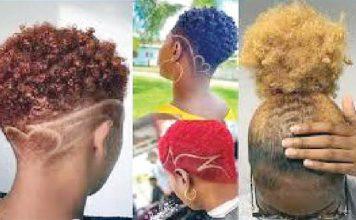Dermatologists and public health physicians have expressed concerns about the potential cancer-causing risks of hair dyeing due to dangerous chemicals in the products.
They have warned about the serious health threats, such as skin irritation, allergic reactions, blood disorders, and even cancer, that these chemicals can pose.
Wakadaily learnt that, the Experts have emphasized that prolonged exposure, especially to permanent hair dyes, may increase the risk of cancer, including bladder cancer and leukaemia.
It is advised to be cautious with hair products and watch out for allergic reactions that can result in itching, swelling, and breathing difficulties.
Dr. Abigail Idowu from Olabisi Onabanjo University Teaching Hospital highlighted the carcinogenic ingredients in hair dyes that are linked to cancer in animals, as well as other skin issues like dermatitis and permanent discolouration. She recommended checking the ingredients on hair dye products and opting for natural alternatives.
“While the effects of chemicals used in the production of permanent hair dyes on human health are still being studied, there is growing evidence linking it to an increased risk of cancer, particularly in people who dye their hair frequently or for extended periods.
“Although the health risks associated with hair dye may not be immediately apparent, long-term exposure to these chemicals can lead to serious consequences
“The scalp is particularly vulnerable to these effects because it is a sensitive area that can easily absorb chemicals.
“People with sensitive skin or a history of allergies should be especially cautious about using hair dyes, as they may be more likely to experience adverse effects,” she cautioned.
Supporting her stance, Dr. Solomon Olorunfemi, a Senior Registrar in the Department of Community Medicine and Primary Care at the Federal Medical Centre, Abeokuta, Ogun State, stated that the chemicals found in permanent hair dyes can be absorbed by the body, leading to potential health problems.
He elaborated, “We have different kinds of dyes. There are temporary and permanent dyes. Most of these dyes are made up of chemicals, some of which could have toxic effects on the body. Some components can be absorbed into the body system, thereby, causing some health issues.
“Among the health issues that have been shown so far is that dyes can cause skin irritation or allergic reactions.
“Some dyes can result in hair loss and it has also been shown that some, due to the toxic chemicals they possess have the potential of causing bladder cancer or blood cancer – leukaemia.
“Although, those experiments were carried out on animals, some schools of thought disagree with that.
“Some people believe that individuals who have frequent exposure to those dyes tend to develop cancer.”
Olorunfemi warned that hair stylists and barbers are at higher risk of having cancer because of frequent exposure.
“For example, hair stylists or barbers who have frequent exposure to these chemicals stand a high risk of developing injurious health conditions,” he warned.
When asked about people who should not use dye, the physician said there is a need for an individual to observe what his body reacts to and try to avoid it.
“Our body’s reaction to allergies or anything may differ. What Mr ‘A’ may use and not have any reaction, Mr ‘B’ may apply it and develop significant health issues. People need to know what they are allergic to, to avoid rubbing it on their skin and hair.
“If people know that rubbing certain things on their skin or hair yields certain reactions that are not bearable, they should avoid or stop using it. Those who have allergies should stop using them.
“On skin irritation, it depends on the chemical constituents of that dye. If the chemical constituents are not harmful, such a person may not develop skin irritation.
“However, it has been said that prolonged or frequent exposure to dyes, especially permanent dyes has a high potential to cause skin irritation and cancer.
“I will corroborate my claim with a study carried out at the University of California, the study says that the frequency of dyeing hair is significant in the development of cancer.
“According to the study, the number of times you dye your hair may increase your cancer risk. Women who colour or dye their hair with permanent dye at least once a month for a year or longer increase or double their chances of developing bladder cancer over those who don’t.”
When discussing effective strategies for minimizing the risks linked to hair dye, Olorunfemi suggested that.“It is important to make health education a priority. We should let people know the risk. Hair stylists and barbers need to understand the danger too.”
In a study published in the Journal of Applied Toxicology in 2011, a link was discovered between the frequent use of permanent hair dyes and an increased likelihood of developing non-Hodgkin’s lymphoma among women.
Conducted by researchers at the National Cancer Institute in the United States, the study examined data from over 46,000 women over a 10-year period.
The researchers observed a 23% higher risk of non-Hodgkin’s lymphoma in women who reported using permanent hair dyes compared to those who did not use hair dyes.
Although the absolute risk of developing non-Hodgkin’s lymphoma was still considered low, the findings indicated that prolonged use of certain hair dyes containing chemicals like PPD might elevate the likelihood of cancer.
Additionally, the study highlighted that the risk of non-Hodgkin’s lymphoma was greater in women who used darker hair dyes or initiated dyeing their hair at an early age, which implies that continuous exposure to the chemicals in hair dyes could contribute to the onset of cancer.
